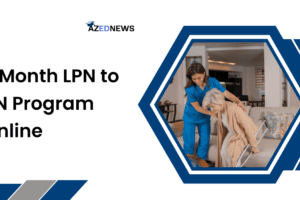Federal internships for college students plays an important role in shaping their career. Many students want internships with the federal government. If you are one of them, then you should start getting ready now for summer 2024 and fall 2025 internships. Some of these positions need a security clearance.
Table of Contents
Getting a security clearance is a detailed process and not easy. The government checks your background very carefully. They look at your family, friends, past jobs, and any travels abroad.
They want to make sure you can be trusted with sensitive information. This screening takes many months to complete. If you start the process early, you will be ready when an internship opportunity arises.
It can take a long time, from 6 to 18 months, to get this clearance. So it is smart to plan ahead and submit applications early. To help you begin your search, we have made a list of federal internships for college students. Let’s begin!
Key Takeaways
- Many government plans give paid jobs for students.
- These jobs are for high school students, college students, and graduates.
- You can work all year or just for the summer.
- Some federal internships even help you get a full-time job after school ends.
- There are also internships for college students who want to work outside.
- They can work on projects to help nature. They can work in parks across the country. These plans can teach new skills and help keep nature safe.
- If you like farms or food, there are plans to learn more. You can get internships, fellowships, and money for school.
- Some plans are made for students who don’t have many chances, or for students who care about climate change problems.
Federal Internships for College Students
Here are the list of best federal internships for college students. Let’s take a closer look at them:
1. The Pathways Internship Program
The Pathways Internship Program gives paid jobs for students. High school students, college students, and graduate students can work. They work all year or just summers, falls, or springs. After they finish, they may get a full job.
2. The Pathways Recent Graduates Program
The Pathways Recent Graduates Program helps those who just got their degree or certificate. It is for people who finished school less than two years ago. It also helps veterans who got their degree less than six years ago.
The program puts these graduates in jobs for one year. During this year, they learn skills for their career path. If they do well, they may get a full-time job at the end of the program.
3. The Presidential Management Fellows Program
The Presidential Management Fellows Program is a top program for students with advanced degrees. It helps you grow as leaders. You get paid and also get benefits. They work for two years and may get a permanent job after that.
4. 21st Century Conservation Corps
The group named 21st Century Conservation Corps gives young people between 15 and 30 years old, and veterans up to 35, a chance to get paid work. This work helps restore forests and grasslands to be healthy. The young workers also learn skills in conservation and other jobs.
5. AmeriCorps NCCC Forest Corps
The AmeriCorps NCCC Forest Corps works with the US Forest Service. Teams of 18 to 26-year-olds work together to help forests. One team leader guides them as they live and serve side by side. They take action to reduce wildfire risks, replant trees, protect nature, and manage resources.
The young people get special training from the Forest Service first. This prepares them for real projects where they take charge and do expert work.
It helps them grow with a team close to their age and get experience for green jobs. They work together to save forests and learn skills they can use for a career protecting our environment.
6. Indian Youth Service Corps
The Indian Youth Service Corps (IYSC) works under the Department of the Interior. It lets Native young people do important work for Native groups. They work on projects related to nature, parks, the environment, buildings, energy, and history.
These projects teach skills and give jobs to Native Americans and Alaska Natives aged 16-30 (or veterans up to 35). The projects can help communities and lead to careers in important fields in the federal government.
7. Public Lands Corps
The Public Lands Corps gives young people between 16 and 30 years old a chance to work. They get paid for helping with nature and public lands.
The work includes reducing wildfire risk, managing trails and places for fun, restoring nature, doing research, helping visitors, and more. This work helps them learn skills to become future leaders in protecting nature.
8. Resource Assistants Program
The Resource Assistants Program, or RAP, is a paid internship that helps people learn about natural and cultural resources careers. This program is for anyone 17 or older who is interested in these fields.
Interns work on important projects under the guidance of staff from the U.S. Forest Service. RAP helps interns develop leadership skills, critical thinking abilities, and communication skills.
Through teamwork, coaching, and mentorship, interns start their careers and gain a deeper understanding of managing our nation’s natural and cultural resources.
This program allows interns to collaborate with experts and learn about the priorities for taking care of public lands.
9. Youth Conservation Corps
The Youth Conservation Corps gets students aged 15 to 18 involved in parks and nature areas. They do projects like building trails, fixing old buildings, removing weeds, and studying animals.
This teaches students to care for nature and their community. The exciting work gets students outdoors for an awesome summer experience.
10. Conference on Asian Pacific American Leadership Public Service Internship Program
The CAPAL Public Service Program helps students get jobs for a time. Students work for the government in D.C. or other U.S. places. The interns do work like research, projects, business tasks, law, and talking to people.
All interns get paid money during the program. The interns may do science studies or work on policies. They may also lead groups or help manage things. The program lets students explore different kinds of jobs.
It gives them real work experience before they finish school. The goal is to grow new leaders from diverse backgrounds. The program is open to college students at all levels.
11. Future Leaders in Public Service Internship Program – Tribal Policy, Agriculture, and Food
The Future Leaders in Public Service Internship Program is a paid internship for students to work with the USDA. College and law students get special job practice with the USDA Office of Tribal Relations.
They also work with USDA groups that deal with Tribal farm and food plans. Interns help programs that give Indian Country benefits. The work relates to USDA Tribal farming and food rules.
12. HEP/CAMP Internship Program
The USDA has a paid summer internship program. It lasts for ten weeks. This program is for students from migrant and farmworker families.
Interns will get work experience. They will also learn about job openings at the USDA. Interns will work at USDA headquarters in Washington, D.C.
The program partners with the National HEP/CAMP Association. This group includes universities, colleges, and nonprofit groups. These groups run a High School Equivalency Program (HEP) or a College Assistance Migrant Program (CAMP).
The interns will be current or former HEP or CAMP students. The USDA’s Office of Partnerships and Public Engagement runs this internship program. Eligible students are current CAMP students, alumni, and recent HEP graduates attending college.
13. Hispanic Association of Colleges and Universities National Internship Program
The Hispanic Group for Colleges and Universities is an organization. This group helps Hispanic-Serving Colleges. These colleges have lots of Hispanic students. The group represents over 500 colleges across the United States.
The group’s Internship Program helps students get jobs. USDA has worked with this group for over 28 years. During this time, over 3,000 college students got paid jobs. These jobs were in the spring, summer, or fall.
Students got jobs at USDA offices in Washington, D.C. Students also got jobs at other USDA offices. The program gives students work experience. These students are undergraduates or graduate students. Students are picked based on grades, leadership, and community service.
14. International Agricultural Education Fellowship Program
The International Agricultural Education Fellowship Program (IAEFP) helps people from the United States go to other countries. The program gives money to U.S. citizens to start school programs about agriculture.
These programs teach students about farming and nature. The IAEFP works with youth groups to spread knowledge about agriculture.
To join the program, you must have a college degree related to agriculture. You also need to know how agriculture education programs work in U.S. schools and youth clubs.
15. NextGen Program
The USDA put a huge $262.5 million into more than 60 schools in the United States and its islands in 2023 last year. The money will help these schools train new leaders in food, farming, nature, and science fields.
There are many new chances for students to learn through jobs, hands-on work, and scholarships. High school students, college students, and grad students can all get involved at these schools.
16. ORISE Internship Programs
Many students want paid chances to learn from top science groups. The Oak Ridge group helps them get those chances. It places college students and new grads in paid jobs.
These include internships and fellowships with big science groups. The groups are the USDA’s science arm, the USDA’s plant and animal group, and the U.S. Forest Service. Students get to work and learn with these groups for a while.
17. Wallace-Carver Fellowship Program
The World Food Prize and USDA offer a paid fellowship called Wallace-Carver Fellowship Program. It allows college students to work with experts. They help look at farm and economic rules. They also help run food, nutrition, and rural programs. They take part in research at labs and farms.
The students attend a week-long meeting in Washington, D.C. The fellowship honors Henry A. Wallace and George Washington Carver. They were leaders who worked to end hunger. The goal is to teach, inspire, and train future farm leaders.
18. Agricultural Scholars Program
Many people work in farms and other jobs linked to farming. The Farm Foundation has a program called the Agricultural Scholars program.
It allows students who are studying economics or policies about farms to learn for one year. They learn about growing crops, businesses linked to farms, and how the government is involved.
The goal is for these students to become experts on farm policies, studying farm markets, money matters about farms, and other topics related to farm economics. The program hopes these students will become great farm economists in the future.
19. FAS Diversity Fellowship Program
The Diversity Fellowship Plan from FAS helps great students, mainly those from groups that have not had many chances at USDA before, get jobs with the U.S. Foreign Service.
The plan pays for these students to get a master’s degree in Agribusiness or Agricultural Economics at any good U.S. university they choose.
Students in the plan will work as interns for FAS both in the U.S. and other countries. They will also get mentors and training to build their job skills. This helps prepare them for future careers with FAS.
20. Mayor Marion S. Barry Summer Youth Employment Program
The Marion S. Barry Summer Youth Program helps young people from 14 to 24 years old. It is run by the government in Washington, D.C.
The program gives students jobs in the summer. They can work for private companies or the government. Eligible students get to earn money. They also get work experience.
The program teaches skills for work. It shows young students how to act at work. The program exposes students to different careers. It helps prepare them for the future.
21. Forest Service Job Corps
The Forest Service Job Corps helps young people. It trains them between the ages of 16 and 24. The program teaches them to care for nature’s resources. At the same time, it lets them finish high school.
The Job Corps also trains the young people for good jobs. And it helps them get work. The U.S. Labor Department leads the Job Corps program. But the U.S. Forest Service runs 24 training centers across the country.
22. USDA Climate Change Fellows Program
The Climate Change Fellows Program helps people work on tasks dealing with climate change. It hires staff to look at ways agriculture and forests can adapt to climate change or reduce its effects.
The students study farming and forestry practices that may be helpful. They analyze costs and policies related to agriculture, forest management, and climate change. They also make tools and information to help improve land management.
To join, you must have finished college. The job lasts up to two years at first, but it can be extended for up to four years total.
Frequently Asked Questions
1. I’m in high school and interested in working for the government. Are there any programs for me?
The Pathways Internship Program provides great work chances for high school students. You can work during the year or just in summer. This program gives students real jobs where they get paid. It is an awesome way for young people, especially college students, to gain skills and build their resume.
2. I just graduated from college. Can I get a federal internship?
Many students feel lost after college. But there is a great way to gain work skills. The Recent Graduates Program offers a one-year job with the government. You will learn a lot and grow your experience. If you do well, you may even get a full-time position after the year ends.
3. Are there any programs that allow me to work outside and help the environment?
There are a few programs that give you the chance to work outside. These programs let you help take care of nature. They help keep national parks clean and safe. The 21st Century Conservation Corps is one of these programs. AmeriCorps NCCC Forest Corps and Public Lands Corps are two more. You work with plants and animals in these programs. You help keep parks and forests nice for people to enjoy.
4. Are there any programs to help me learn more about agriculture?
There are lots of chances for college students who want to learn farming. Groups like the USDA provide paid internships, bursaries, and money aid.
5. I want to learn more about climate change and how it affects agriculture. Are there any programs for me?
The USDA Climate Change Fellows Program brings in recent college graduates to work on tasks to lessen the impacts of climate change on farms and forests. This helps battle a major issue facing our world today in a hands-on way. Students get real-world experience working with experts to develop solutions that make a real difference.
Conclusion
Many students look for ways to get job experience and earn money. The government offers federal internships for college students. These programs give paid jobs and internships for college students. These can help you learn about fields like nature, farming, and science.
There are options for high school, college, and graduate students. Some programs even assist recent graduates to find full-time work. If you enjoy being outdoors or want to know more about food and where it comes from, there are opportunities for you too.












Add Comment